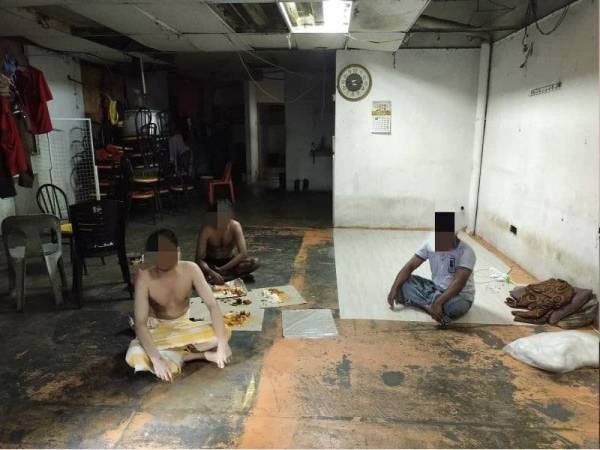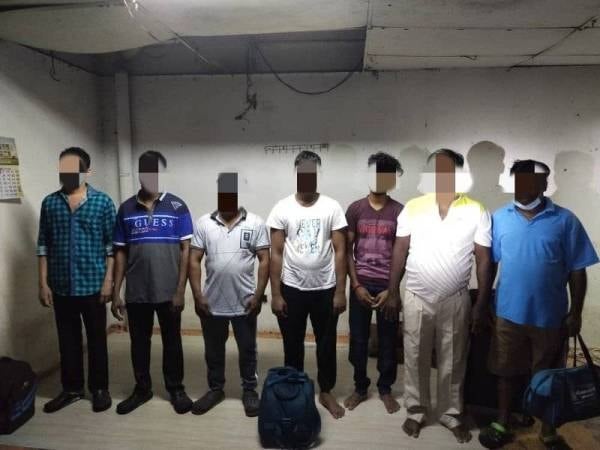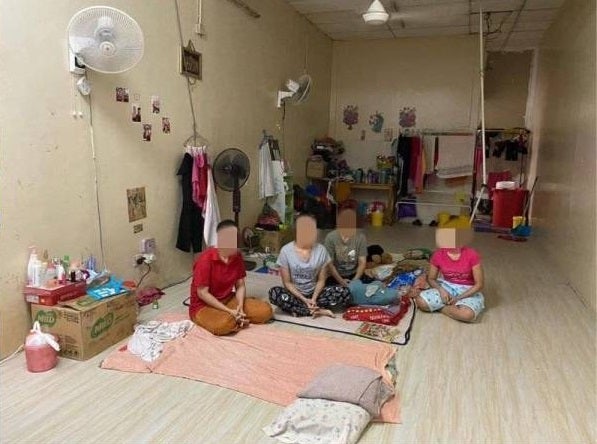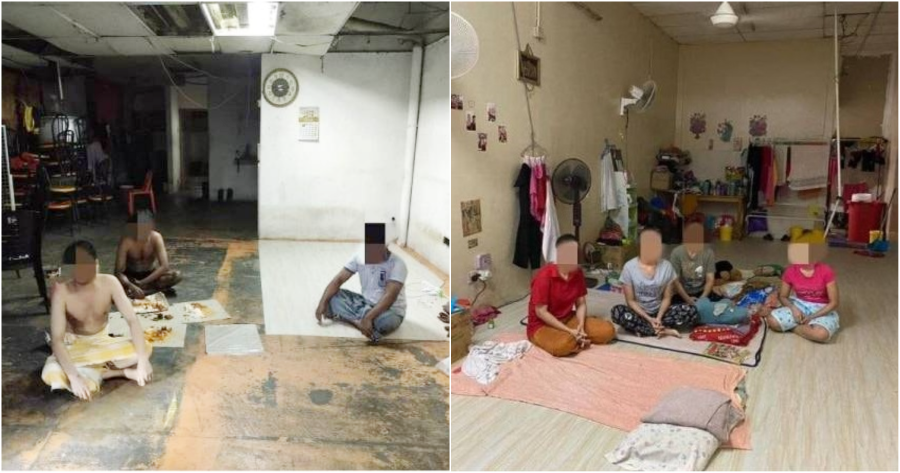Foreign workers aren’t exactly treated well in Malaysia. Not only are they shunned by the general public, but they also tend to be mistreated by their own employers.
It was recently discovered that an employer only paid his foreign workers RM10 a day and even trapped them in their dorms to prevent them from going out during their non-working hours.
According to Sinar Harian, a police team from the Division (D3) Prevention of Trafficking in Persons and Anti-Smuggling of Migrants (ATIPSOM), Bukit Aman Criminal Investigation Department (CID), alongside the Anti-Trafficking in Persons Council (MAPO) Task Force Ministry of Home Affairs (KDN) successfully freed 22 foreign workers from their exploitative employer who worked at a restaurant in Taman Chi Liung, Klang.

Chief Assistant Director of D3 JSJ Bukit Aman, Senior Assistant Commissioner Fadil Marsus shared that the Integrated Shortcut Ops raid was a result of information and intelligence, which was carried out on Thursday (29 April) at the restaurant in question and two workers’ hostels.
Three local men aged 29 to 60, namely the employer and the caretakers of the premises, were arrested.
“Arrests were made for the investigation into the exploitation of forced labour, wages were not paid as promised, all workers were locked up in their hostels and received threats from their employers and guardians,” he said.

They managed to rescue the 22 foreign workers, aged between 23 and 44, consisting of 11 Indonesian women and 11 Indian men. They also confiscated 40 passports, two mobile phones, a BMW car and cash believed to be business proceeds amounting to RM3,858.
The initial investigation found that the employer failed to pay the salary of RM1,500 a month as promised. Instead, he would only pay them RM10 a day, apart from having the victims locked up after working hours.

“Working hours are also as long as 12 hours and there are no days off. Victims are not allowed to use mobile phones even after working hours and permission must be obtained by the employer if they want to use their phones,”
“Victims were threatened with beatings if they tried to escape and if they take more food than what is rationed for them, their salary would be cut,” he added.
Apparently, even the residence provided was not in accordance with the standards of Act 446.
This case is currently being investigated under Section 13 of the Anti-Trafficking in Persons and Anti-Smuggling of Migrants (Atipsom) Act 2007, Section 55B of the Immigration Act 1959/63 and Section 12 (1)(f) of the Passport Act 1966.
What do you think about this? Let us know in the comment section.
Also read: Rohingya Activist Has Not Left Home In KL For A Year Over Concerns Of His Family’s Safety








































